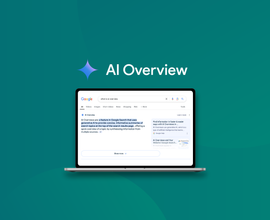What are 404 Errors? 4xx Codes and Their Impact on SEO
What is a 404 error?
A 404 error code, sometimes called a 404 not found code, is an indication that a previously-existing webpage no longer exists on the server. The page has either been removed completely or moved to a different location on your site and has not been properly redirected.
What is a 410 error?
A 410 error is more permanent than a 404 error. Use a 410 error when you are removing a page completely from a server and not leaving a forwarding address. This tells a search engineSearch Engine
A search engine is a website through which users can search internet content.
Learn more that the page is gone and not returning.
How do search engines handle these codes?
All though these codes seem similar, Google handles these codes very differently.
404 Code: When Google comes across a 404 code, it will continue to circulate the page through its index, because a 404 indicates that the page will eventually come back. If a page is still returning a 404 page after 6-12 months, a search engine will deindex it.
410 Code: Because a 410 is permanent,, when a search engine comes across this code, it will know to deindex the page.
Are 4xx codes bad for SEO?
Yes and no. Google understands that all websites are going to contain 400-level errors. If a website contains some 404 pages, it’s usually fine from a search engine’s perspective.
Still, there are some issues caused by 400-level errors:
- Directing a user to a 404 page
- If you are directing a user to a 404 page, this can increase bounce rate, and a high bounce rate can negatively impact rankings and traffic.
- Losing link equity
- If a page has links pointing to it and becomes a 404 page, link equity will sit there and not pass to other areas of the website. This could impact performance.
- High-traffic URL
- If there is a page on the website that generates traffic but is no longer live, it is best practice to redirect this traffic to a similar page to bring users to a similar experience.
When it’s good to have a Not Found page on a website:
- Not all pages should be redirected
- If a page does not generate any traffic or have any backlinks, you should leave it as a 404 page or make it a 410 page so Google can deindex it.
- E-Commerce product pages
- It is not advisable to 301 redirect a 404 product page. If you have a page that is ranking for a long-tail transactional keyword, it is better to keep this page live and use it to display similar products. This helps keep the user on the website, provides a good user experience by suggesting a similar product, and helps maintain rankings.
When should I redirect a URL?
You should redirect a 404 page when that page generates a lot of traffic or contains multiple backlinksBacklinks
Backlinks are links from outside domains that point to pages on your domain; essentially linking back from their domain to yours.
Learn more. Redirect users to a new experience or a similar page to help prevent traffic drop or bounce rate issues.
If a page contains multiple backlinks, it is important to not trap that link equity. A redirect can help spread that link equity to other pages.
When redirecting a 404 page, you should use a 301 redirect to tell Google this is a permanent redirect.
When should I use a 410 error?
If a page does not generate traffic or contain any links, use a 410 code so search engines know this page is gone and will not return.







